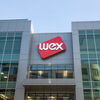How could LePage's sweeping tax plan affect your business?
Gov. Paul LePage has been on the road selling the sweeping tax reform package within his two-year, $6.57 billion budget. He provides this rationale: “A modernization of the sales and income tax bases, a lowering of income tax rates and elimination of the estate tax will align Maine's state tax system with the 21st Century economy, make the state more competitive, contribute to long-term economic growth, protect lower- and middle-income households from shouldering more of the tax burden and provide a simpler, more stable revenue base to meet the state's spending commitments.”
Joel Johnson, an economist at the Maine Center for Economic Policy, challenged those assertions at a Feb. 17 hearing on the governor's proposals, stating they “would drive state revenue as a share of the state economy to historically low levels, setting Maine up for fiscal crises down the road, especially during times of recession or slow economic growth. This reduction in revenue will force cuts to education, health care and local communities, which, in turn, will undermine the foundation of a strong, sustainable Maine economy.”
Which vision is correct?
Pierce Atwood's state and local tax practice has compiled a useful guide to learn what's at stake. (Read Pierce Atwood's full report at pierceatwood.com/maine-governor-proposes-major-state-tax-restructuring) Here's a quick overview of the governor's plan:
Income tax: Beginning with the 2016 tax year, the top individual income tax rate would be lowered gradually from the current 7.95% to 5.75% by 2019. Beginning with the 2017 tax year, the top corporate income tax rate would be lowered gradually from the current 8.93% to 7.5% by 2021.
Estate Tax: The estate tax exemption would be increased from $2 million to $5.5 million for the estates of individuals who die in 2016. The tax would be eliminated starting in 2017.
Sales and Use Tax: General sales-and-use tax rate would increase to 6.5% (from the current 5.5%). Lodging taxes would remain at 8%. The tax on prepared foods (including alcohol) would drop to 6.5% (from the current 8%). The service provider tax would increase to 6% (from 5%). The tax on short-term auto rentals would decrease to 8% (from 10%). The tax base would increase dramatically by eliminating exemptions on a wide range of goods and services.
Property tax: Business equipment eligible for the Business Equipment Tax Reimbursement (BETR) program would be transitioned to the Business Equipment Tax Exemption (BETE) program over a four-year period, with BETR fully eliminated in 2019. Municipal revenue sharing would be funded for the fiscal year beginning July 1, but would be eliminated the following year. The exemption for nonprofit entities, other than churches, would be limited to the first $500,000 of value and 50% of the excess above $500,000.
The proposals are now being scrutinized by the Legislature's Joint Standing Committees on Appropriations and Financial Affairs and Taxation. Stay tuned.










Comments